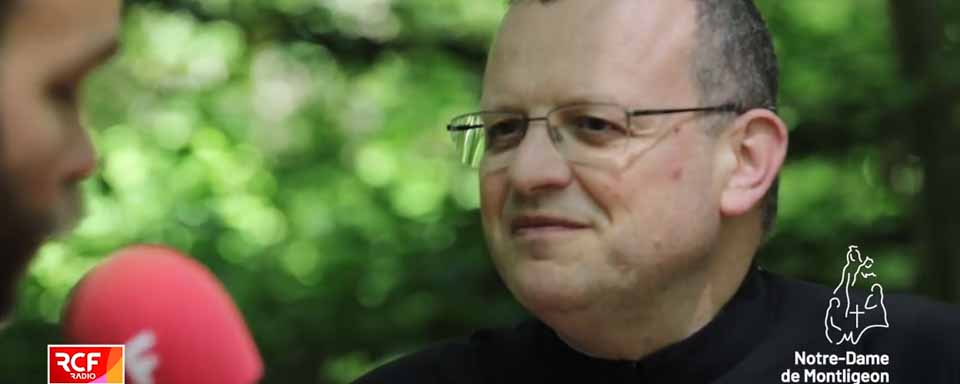Can the damned, the very people whom, in our imagination, are roasting in the fire of hell, change their mind after all? Find out with Rev. Fr. Thomas Lapenne, as he clarifies a few truths on what hell is about. In particular, how the tragic possibility of ending in hell out our free will calls for responsibility in our daily life.
Hell is a spiritual state of self-exclusion
In art, paintings or frescoes give a frightful picture of the Last Judgement. If this is only to instill a holy awe that leads to reflection, why not? However, hell is primarily a spiritual state of self-exclusion. You will go to hell if you voluntarily exclude yourself from the Kingdom of heaven, where the Lord himself longs for you. God does not disallow anyone since he wills everyone to be saved. He has created each of us to be with Him and to rejoice in His glory. As for the so-called predestination, the only and real one is predestination to heaven, not to hell.
In the Gospel, Jesus mentions the Gehenna of fire and hell 46 times. However, his intention is only to remind us of the tragic possibility of misusing our liberty and saying a definite ‘no’ to God. The result of such a decision would then be self-exclusion from the promises of life.
Is there no turning back?
You can change your mind whilst on earth, as you are on your way to heaven. Change is always possible right up to the last moment of earthly life, right up to the moment of death. Consider the conversion of the Good Thief who repented and entrusted himself to Christ a few seconds before dying. Jesus assured him: “Today you will be with me in Paradise”. Thus, all you have to do is to open up to the grace of mercy that strikes on every sinner’s heart. Right up to the last moment, you have a chance to change your mind.
At the moment of death, my life is over and time, as it were, has come on a standstill. I’m going to be judged according to all that I have lived through and to all my decisions, especially the last one or, at least, according to the state of mind in which I will then be when I will appear before God.
When it comes to saying ‘Yes’ or ‘No’ to the Lord, the decision is entirely my own. God will not decide for me. He will simply display my life before me and ask me to make a choice consistent with everything I experienced. I can either make a liberating and joyful choice to follow Him or to refuse Him and lock myself up in eternal sulkiness.
The ultimate decision will be final as consistent with the moves and directions of one’s life. It is absolute, even if at the very last moment, when faced with Christ exposing his mercy, one can hope for a trigger similar to that of the Good Thief. ‘Lord, you know my blunders and my denials, but faced with your goodness I bow down and I wish to follow you’. There is hope. Let us believe that no one is in hell, and let us pray for this.
Can choosing to go to hell be akin to suicide for the soul?
By refusing God, one refuses life. In such case, we may indeed call it suicide for it is a matter of spiritual death – the death of the soul. The Book of Revelation in particular – but also the letters of John – mention the ‘second death’ that affects the soul. No one can overcome it unless one repents and beg Christ for life. Souls are meant to be irrigated by grace, which means that if I turn down this divine life, I am in a state of spiritual death, de facto.
People who turn God down and thereby choose damnation still retain their intelligence, their willpower, the awareness of who they are and of their actions, altogether with that of the sins they committed. Even though they abhor it, they obtinately remain attached to this evil and refuse to quit it. It gnaws away at them, but they can neither change nor die. They remain in a kind of eternal unhappiness that no one should wish on anyone. Although they saw God and the paradise that they were destined to, they declined it, in what may have been a total mad move. This ultimate foolishness, that is, choosing death, is therefore a kind of suicide.
Is there no contradiction with the Christian faith of love?
The existence of hell is not primarily intended to frighten or incapacitate people. Yet being aware of it may cause a salutary reaction. “My life is serious business, I have only one life, and it is precious”. God’s love is demanding in the sense that it is perfect. God does not pretend. He is in everything and everywhere, and He wills to fill us with his boundless love. This infinite love is both demanding and a permanent challenge for one’s life and own free decisions.
Indeed, this calls one to take responsibility for one’s actions, although perhaps not for all of them, as sometimes one is subjected to things such as traumas and setbacks on account of other people’s choices, for example.
But it is up to each one to choose, deep inside, how to react and which path they should follow: the path of faith or the path of rebellion, the path of forgiveness or that of grudge, the path of hope and love or that of despair and hatred?
When told about the Galileans who were crucified by Pilate, or about the passers-by who were crushed down by the fall of the Siloam Tower, Jesus calls for conversion. “Unless you repent, you will all likewise perish“, in other words: unprepared, unaware, without having freely chosen God. For us too, this is a call to repent and change our hearts. To see life as a gift from God and live it in a proper manner.
Being aware of the possibility of hell encourages responsibility
At the turn of the nineteenth century, the fear of hell may have been instilled in people. However, that is not the Lord’ way of treating us. First and foremost, He demonstrates His love and urges us to join him at the eternal nuptial celebration. Since He respects our freedom, He seriously admits the possibility that we may stray from him. In Deuteronomy (30:19) we can read: “I have set before you life and death, the blessing and the curse. Choose life, then, that you and your descendants may live“.
God is not to be feared. Except in a filial kind of awe, one that marvels at His greatness. Better live in fear of one’s own actions and decisions that can separate us from God forever. Such fear can help us realise that our actions are important and that life carries the weight of eternity.




